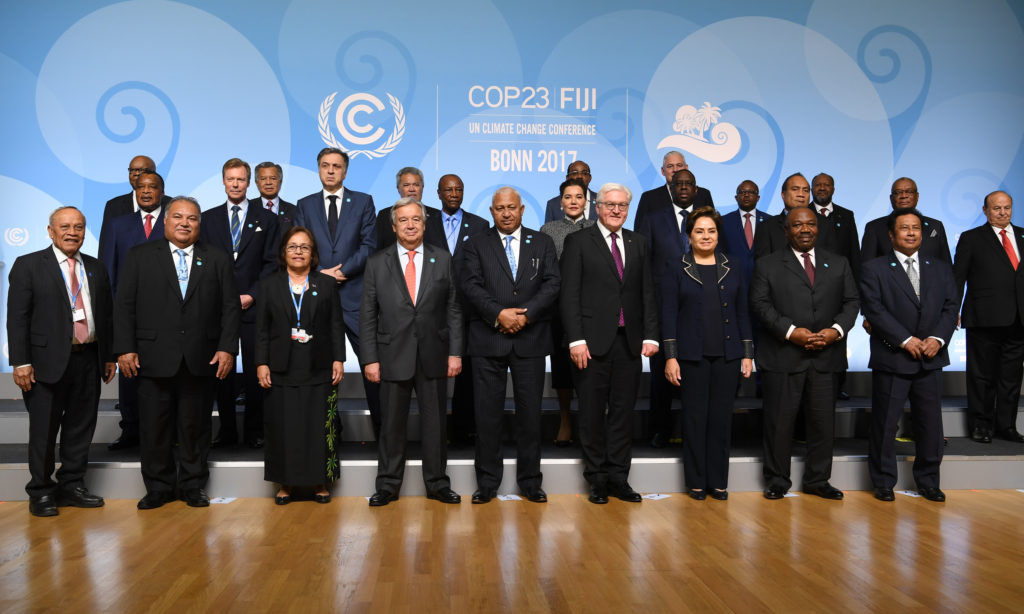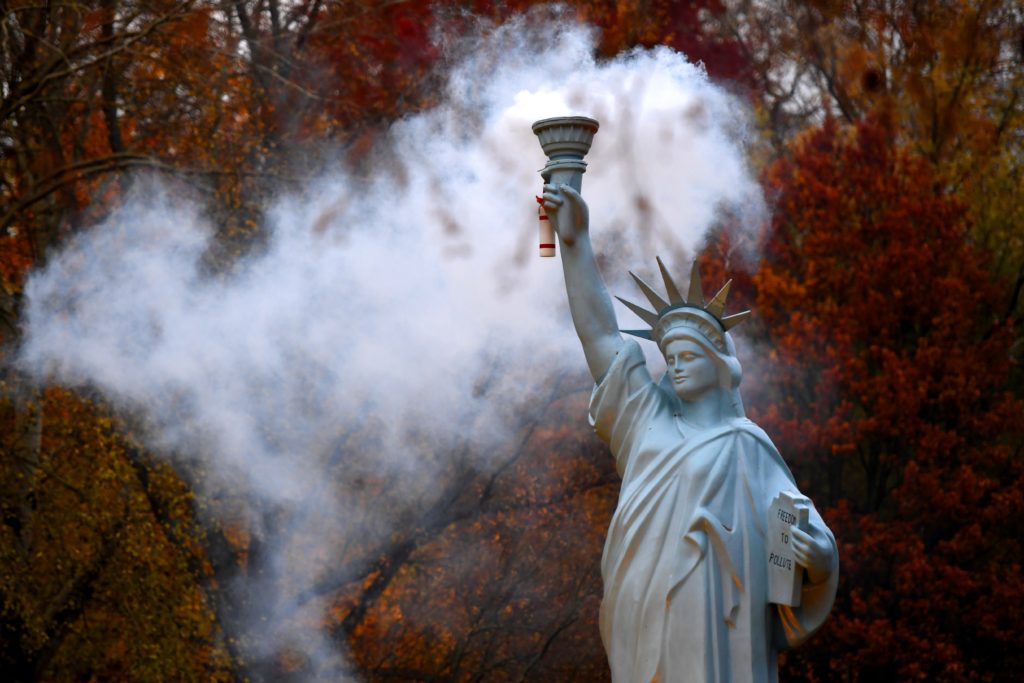Coping with COP
By Afia Salam | Environment | Published 7 years ago

In a country as highly placed as Pakistan is on the Global Vulnerability Index (among the top 10 in the past decade), one would think matters related to Climate Change would be centre stage at all times. However, this is not the case. Even worse, rarely do the ‘official’ discussions include other stakeholders in the decision-making process.
However, come end November every year, when the annual UN Climate Change Conference, also known as COP (Conference of the Parties) takes place, there is a mad rush by the concerned government departments to agree on a country-specific narrative to be presented on the international stage.
It took 20 years of evidence-gathering and tedious negotiations to get the Paris Climate Agreement within the United Nations Framework Convention on Climate Change (UNFCCC). This framework will deal with greenhouse gas emissions mitigation, adaptation and finance, starting in the year 2020. The agreement was negotiated by representatives of 196 countries and adopted by consensus on December 12, 2015, at COP 21 in Paris. As of November 2017, 195 UNFCCC members have signed the agreement and 171 have become party to it. A long and tedious process, the Agreement aims to keep the global temperature rise this century well below 2 degrees Celsius. A rise in temperatures could prove catastrophic for the planet.
It was the shared vision of taking action that made the Paris Agreement a landmark deal. Other than individual country commitments, known as Intended Nationally Determined Contributions (INDC), the bedrock of the Agreement was, of course, the premise of cooperation, financial as well as technological, between the developed and developing countries to enable the latter to meet their commitments.
Then Trump happened! And true to form, he made good on his campaign promise of withdrawing from the Paris Agreement which he sees as being detrimental to the national interest of the USA.
The recently concluded COP23, that took place in Bonn, in November 2017, took as much time to cobble a final agreement as it did to get its head around the consequences of US withdrawal from the Agreement, though China seems to be easing into the global leadership role, despite being one of the biggest polluters.
Where does Pakistan fit in this scenario? Were do we stand vis a vis the impact of these negotiations? How do our INDCs embody these domestic hopes and aspirations and are they in sync with global expectations?
In a somewhat unpleasant start to the COP meting, there was an irate statement from the PM’s office questioning the presence of journalists, representatives of some NGOs and civil society organisations, as well as some official staff, as part of the group going to Bonn. What was perplexing was the objection to the independently-funded participants as they caused no burden on the national exchequer.
As usual, it was a classic case of turf war wherein the government, and especially the Foreign Office, wanted to have sole proprietary rights over representing Pakistan and negotiating on its behalf. And sidelining those who are involved in gathering data and doing analysis all year round, instead of surfacing only at the time of the Conference.
A glance at the composition of other countries’ delegates to COPs shows the vibrant role played by environmental NGOs and civil society activists, who act as a pressure group over the negotiators to tip the scales in favour of just and equitable agreements. Bangladesh sends a legion of journalists, who not only report on the proceedings but also highlight the plight of their own country and garner attention leading to assistance. More often than not, these visits are sponsored by the government. Even the smallest of islands are represented by a large number of their activists who help to draw attention towards their country’s situation.
In this day and age of openness, transparency and constituency-building by taking all stakeholders on board, Pakistan still seems to be stuck in the rut of secrecy and control. To its credit, the Ministry of Climate Change (MoCC) was a part of all the meeetings taking place throughout the year, and also of a preparatory sector-specific round of dialogues initiated by the Civil Society Coalition on Climate Change (CSCCC) where the strategies were thrashed out and a report prepared.
Newsline spoke to a variety of stakeholders at COP 23 representing Pakistan to gather their feedback on what Pakistan gained — or didn’t.
Dr. Adil Najam, Dean of Pardee School of Global Studies at Boston University, and former vice-chancellor of LUMS, was the lead author of the third and fourth assessment reports of the Inter-governmental Panel on Climate Change (IPCC), which received the 2007 Nobel Peace Prize. He says Pakistan’s performance was “unremarkable. Same people. Same talking points. Impact — none. To be honest, I don’t think Pakistan went to COP23 looking for anything. And it certainly did not get anything, because the key to a successful COP negotiation is what you do all-year round at home. Pakistan is simply not considered to be a player in the climate game. Sad, because we used to be considered important players. There was, however, one good thing I noticed this year. A group of (mostly young) parliamentarians was part of the delegation. That, I think, is excellent. I am confident that engaging parliamentarians and building a political constituency is the right approach. The bureaucratic approach and the NGO-led technocratic approach has just not worked!”
Dr. Pervaiz Amir, agro economist and a former member of the PM’s Technical Advisory Panel on Climate Change, says that Pakistan went to COP23 with “a well-laid out document based on five rigorous consultations with multi-stakeholders. We had a printed document with consensus on issues, strategy and the way forward. But there was a lot of negative press, and the team selection was regarded as highly political and suspect. Some government and even some private delegates cut a sorry figure.”

Syed Akif, Secretary MoCC, said very candidly that “Pakistan is hardly a heavyweight that can go into the COP on its own. It is part of alliances and interest groups like the Likeminded Countries Group (LCG), of which Pakistan is a member. We are also a member of the G 77 plus China — a group of 134 countries (of which China is not a member but sits with them). On almost all actions, if not all, we are aligned with them. We went to COP23 with one goal: Implement the Paris Agreement, including the pre-2020 aspirations and the financial package arising from CBDR (Common but Differentiated Responsibility), the foundation stone of the Paris Agreement. We also went to accelerate the Rule Book. It took 21 years to reach Paris. And short of major climate disasters — especially in the developed world — we are not likely to see rapid progress. There is a gap of the promised 100 billion dollars a year and a denial of historic responsibility by the developed world. The US says that this figure, or for that matter any figure, is merely aspirational and not binding.”
Shafqat Kakakhel, former Ambassador, who has been part of these negotiations for many years, says, “COP23 was the second global climate conference since the adoption of the landmark Paris Agreement in 2015, and was meant to reach consensus on operationalising the various institutional mechanisms related to climate change actions. However, Pakistan just does not have the requisite professional and diplomatic competence to serve as a ‘value added’ participant in the global climate discourse.”
Aisha Khan, who represented The Mountain and Glacier Protection Organization (MGPO), one of the three NGOs registered with the UNFCCC, and who also heads the CSCCC, which was responsible for the stakeholder sessions, says, “Pakistan was very clear about its country position. This position reflected the adaptation and mitigation goals submitted in the NDC. This year the MoCC collaborated with the CSCCC and jointly organised a series of six dialogues to frame the agenda at COP23. CSCCC compiled the recommendations in the shape of a report which comprehensively covers Pakistan’s position, the red lines and the way forward. Unfortunately, Pakistan does not proactively engage its civil society and benefit from this resource.”
Bilal Anwar, who has worked for many years with the UNFCCC and is now associated with a global finance institution, says, “Pakistan has been strategically consolidating its international efforts through regional and like-minded negotiation groups allowing its interests to be elevated forcefully and compellingly.
“However, COP23 cannot be marked a success for Pakistan. There was no identification of new and additional sources of funding, although Pakistan pushed its stance on loss and damage, finance and capacity-building in several negotiation sessions and work streams. On the adaptation front, Pakistan will be in desperate need of substantial amount of funding in the coming years. The gap remains at the level of readiness and required coordination to effectively address the multi-sectoral issues of climate change, both at home as well as internationally.”
Rina Saeed Khan, an award-winning environmental journalist and author, and who has attended previous COPs has a different perspective: “The official 20-member strong Pakistani delegation to COP23 this year was predominantly male (just one female member from the MoCC). Unfortunately, despite months of preparation with round-table discussions led by civil society in Islamabad and an official position paper prepared before the conference, there was a lack of competency when it came to Pakistan’s participation in negotiation streams like finance, loss and damage, national adaptation plans, pre-2020 commitments and the implementation of the Paris Agreement as these conferences are becoming increasingly technical. For example, our federal minister for climate change, the head of our delegation, could not answer a simple question about the relevance of the Nationally Determined Contributions (NDCs).”
This was a real pity as there were some prominent people from Pakistan’s civil society present at COP23 (but only as observers on NGO badges) like the ex-deputy director of UNEP, Shafqat Kakakhel, the former chairman NDMA, General Asghar Nawaz, and a member of the Global Military Advisory Council on Climate Change, General Tariq Ghazi, but they were not asked to assist the Pakistani delegates, despite their wealth of experience. At next year’s conference the delegation needs to include representatives from the provinces and cities who will be implementing the Paris Agreement. Pakistan must also be well prepared with a full agenda of activities to be held at its pavilion, and highlight its efforts in rescue and relief, agricultural improvements, afforestation and renewable energy. This year the pavilion, though an improvement on earlier years, remained largely empty.


